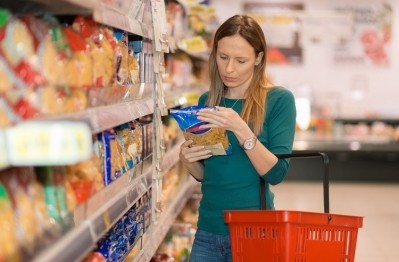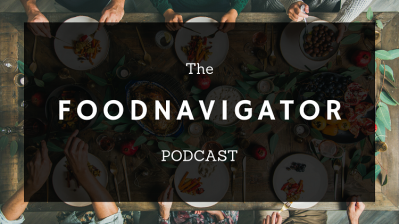‘Our children are fed with ads promoting unhealthy foods day in, day out’: Fresh call for crackdown on junk food marketing

As far back as 2007, the largest European food companies committed themselves to an ‘EU Pledge’ in which they promised to change the way they targeted children in advertisements. They pledged only to advertise foodstuffs to children under the age of 12 if the products fulfilled specific nutritional criteria.
More recently, the EU Code of Conduct on Responsible Food Business and Marketing Practices contains a set of seven ‘aspirational objectives’ as voluntary commitments for action together with a monitoring and evaluation framework to measure progress. While the Commission warned it ‘will consider legislative measures if progress is insufficient’, the Code continued to leave the food and advertising industries to self-regulate.
But this voluntary approach is not working, according to the assessment of European consumer organisation BEUC.
“Time and time again, self-regulation has shown it is unable to truly restrict ads targeting children. The food industry’s own commitments simply serve to reassure policymakers on paper and buy themselves time, while our children are fed with ads promoting unhealthy foods day in, day out,” Monique Goyens, BEUC’s Director general, argued.
The organisation says voluntary commitments on responsible marketing ‘blatantly fail’ to protect European children from ads promoting unhealthy food.
EU Pledge gives ‘a lot of leeway’ to food and drink brands
This conclusion is based on a snapshot survey conducted by BEUC and 10 of its member organisations as part of a project initiated by Professor Amandine Garde of the University of Liverpool.
In the Spring of 2021, the consumer advocates examined advertising to identify examples of practices they believed infringed leading EU food and beverage companies’ commitments under the voluntary EU Pledge on marketing.
“We brought these cases to the Accountability Mechanism of the EU Pledge, the EU-level industry self-regulatory initiative to restrict unhealthy food marketing,” BEUC explained.
Of 81 complaints, only 14 were successful. BEUC held this up as evidence that the voluntary commitments made by industry are ‘so weak’ that they give ‘a lot of leeway’ to food and drink companies to continue marketing unhealthy products to children.
“Our snapshot survey across Europe highlights the wide range of tactics the food industry has deployed. Be it a fizzy drink dance challenge on Instagram, product placement of packets of crisps snuck in a video game, or an appealing fast-food ad near a playground, it is simply impossible for children to ignore ads pushing foods they should only be eating occasionally. The omnipresence of such persuasive ads make it seem normal to drink soda like one would drink water or snack on a pack of crisps instead of an apple,” Goyens insisted.
Voluntary commitments not fit for purpose, BEUC claims
What are the ‘weaknesses’ of the current approach?
Firstly, the consumer organisation insists, nutritional criteria are simply too weak. Products deemed acceptable to market to children are ‘much higher’ in ‘nutrients of concern’ than independent public health authorities recommend, the say.
This loophole means food marketed to children is often of a worse nutritional quality than that aimed ad adults, BEUC revealed. For instance, Spanish consumer organisation OCU conducted a survey which found that while almost a third of foods and beverages marketed towards adults received a ‘D’ or ‘E’ Nutri-Score front-of-pack nutrition label, the number of such products marketed towards children was three times that at 89%.
Categories like cake and biscuits should not be marketed to children at all, the World Health Organization believes. However, Belgian consumer group Test Achats/ Test Aankoop found that the biscuits and chocolate category represented over 60% of food adverts.
Prime time family TV shows also offer food and beverage companies the opportunity to reach children in the audience with junk food advertising, BEUC claimed. The voluntary code prohibits advertising on programming where children make up 35% or more of the audience. However, BEUC points out that 0-14 year-olds only account for 15% of the EU population, making that audience threshold in family viewing ‘particularly difficult to attain’.
Digital marketing is a further bone of contention. The current rules underestimate the ‘significant exposure and powerful marketing tactics’ used, the consumer group stated.
On digital, 80% of European 9-16-year-old children use a smartphone to go online every day. The rapid expansion of digital platforms and time spent by children online has been matched by an upsurge in digital advertising spend in Europe: almost quadrupling in just over a decade.
Much of this advertising is for food and beverage products. A 2020 report by the Catalan Audiovisual Authority found that, when examining some popular teen and young people’s profiles, food and beverages were the most common product type advertised (25% of ads) on the Tik Tok social media platform.
The line between promotional content is also less clear for children online, BEUC said, suggesting that the food and beverage sector uses ‘sneaky tactics’ to get their messages under the radar. In particular, the organisation called out the use of ‘advergames’ and branded entertainment. The prevalence of influencers, food branded apps, and move into the online gaming space further expose children to advertising of this type. “The ‘stealth’ techniques used by food companies to advertise to children and teenagers online are very engaging and persuasive but less obvious to detect by the younger generation,” BEUC warned.
BEUC also took issue with the complaints mechanism itself, claiming it delivers ‘accountability in name only’. “Companies get away with breaching their own rules – the EU Pledge complaint process is too slow, obscure, inconsistent, and lenient,” the organisation insisted.
A call for ‘binding EU rules’
In light of these ‘glaring shortcomings’, BEUC wants to see the introduction of binding rules that apply universally to food makers across the bloc.
“Knowing the powerful influence of food advertisement on kids’ eating, coupled with an obesity epidemic, policymakers can no longer bury their heads in the sand. Unhealthy food marketing is only set to keep growing if we don’t put an end to it now. It is high time the EU got its act together and finally came up with rules with teeth,” Goyens urged.
The group is advocating an online ban for the marketing of unhealthy food products, including on company’s own websites and social media accounts. They also want a 6am to 11pm watershed for television advertising, as well as a ban on the use of marketing techniques to appeal to children on food packaging, such as the use of cartoon characters.
Evidence of the harm that unhealthy marketing to children causes should compel European regulators to take a tougher stance and abandon their ‘dogmatic’ support of voluntary efforts, Amandine Garde, Professor of Law at the University of Liverpool, argued.
“There is growing international consensus that self-regulation of the industry for the industry has consistently failed to protect children from the harmful impact that unhealthy food marketing has on their health and on their rights. In light of the cross-border nature of so much food marketing, it is unacceptable that the European Union has taken such a passive attitude to the problem for over two decades,” she said.
“This project reinforces the argument that, to be effective, legislative reforms must be driven by evidence, not by a dogmatic, misplaced belief in the virtues of self-regulation.”


















